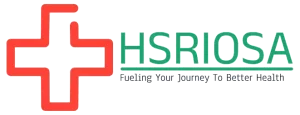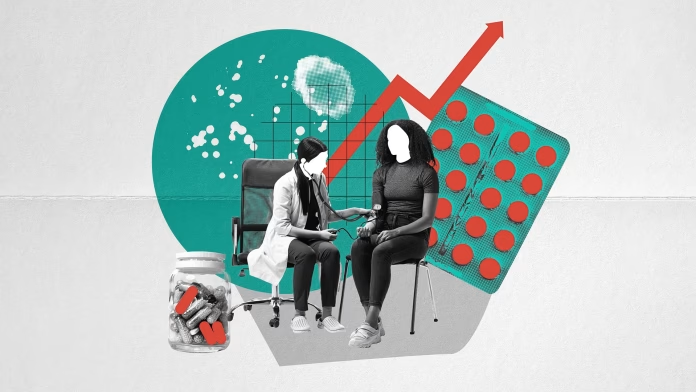Healthcare has undergone tremendous evolution over the past century. From the discovery of antibiotics to the development of precision medicine, the field has continually adapted to meet the needs of an increasingly complex and interconnected world. Today, healthcare is facing both unprecedented opportunities and significant challenges, shaped by technology, societal demands, and emerging health threats. This article explores the current landscape of health and medicine, highlighting key innovations, persistent challenges, and the direction in which modern healthcare is heading.
The Role of Technology in Modern Medicine
Technology is transforming the way healthcare is delivered and experienced. From diagnostics to treatment and patient monitoring, innovations are improving both efficiency and outcomes.
-
Telemedicine: The COVID-19 pandemic accelerated the adoption of telehealth, enabling remote consultations and reducing the burden on healthcare facilities. Telemedicine is especially vital for rural populations and individuals with mobility challenges, offering access to specialists without the need for travel.
-
Artificial Intelligence (AI): AI is increasingly used to analyze medical data, assist in diagnosis, and predict patient outcomes. For example, AI-powered imaging tools can detect tumors and other anomalies with accuracy often matching or exceeding that of human clinicians.
-
Wearables and Remote Monitoring: Devices such as smartwatches, fitness trackers, and continuous glucose monitors provide real-time health data. Patients and healthcare providers can monitor chronic conditions more effectively, reducing hospital visits and improving quality of life.
These technologies are not only reshaping healthcare delivery but also empowering patients to take a more active role in managing their health.
Personalized Medicine and Genomics
Traditional “one-size-fits-all” approaches are giving way to personalized medicine, where treatments are tailored to an individual’s genetic profile, lifestyle, and medical history.
-
Genomic Medicine: By analyzing a patient’s DNA, clinicians can identify predispositions to diseases, predict drug responses, and develop targeted therapies. This approach is revolutionizing fields such as oncology, where cancer treatments are increasingly based on tumor genetics rather than general protocols.
-
Pharmacogenomics: Personalized prescriptions reduce adverse drug reactions and improve effectiveness, ensuring patients receive medications that work best for their unique biology.
-
Preventive Care: Genetic testing allows for proactive health management, enabling individuals to mitigate risks for conditions like heart disease, diabetes, and certain cancers.
As the cost of genetic sequencing continues to decrease, personalized medicine is becoming more accessible, promising a future where treatments are both precise and effective.

Addressing Mental Health Challenges
Mental health is gaining recognition as a critical component of overall health. The pandemic highlighted the importance of addressing psychological well-being, revealing significant gaps in access and awareness.
-
Rising Mental Health Concerns: Anxiety, depression, and stress-related disorders have increased worldwide, affecting people of all ages. Remote work, social isolation, and economic uncertainty have contributed to the rise.
-
Digital Mental Health Solutions: Online therapy platforms, meditation apps, and AI-driven mental health tools are expanding access to care, especially in regions with limited traditional resources.
-
Workplace and Community Initiatives: Employers and governments are integrating mental health support into wellness programs, emphasizing prevention and early intervention.
Greater attention to mental health is reshaping public policy, clinical practice, and societal attitudes, emphasizing holistic health rather than purely physical outcomes.
Healthcare Inequality and Global Disparities
Despite advancements, significant disparities persist in access to healthcare. Socioeconomic factors, geography, and systemic inequities influence who receives care and how effectively.
-
Developing Countries: Limited infrastructure, shortages of healthcare professionals, and lack of affordable medicine hinder access. Infectious diseases and preventable conditions remain major challenges.
-
High-Income Nations: Even in wealthy countries, marginalized communities may face barriers related to cost, language, or cultural competence. Chronic conditions and mental health issues are often underserved in these populations.
-
Global Health Initiatives: Organizations such as the WHO and Médecins Sans Frontières work to reduce disparities, providing resources, vaccines, and expertise in underserved areas.
Addressing health inequality is essential not only for ethical reasons but also to ensure global stability and resilience against emerging health threats.
Chronic Disease and Lifestyle Factors
Non-communicable diseases (NCDs), including diabetes, cardiovascular disease, and cancer, account for the majority of global deaths. Lifestyle factors, such as diet, exercise, and stress, play a significant role in the prevalence of these conditions.
-
Prevention and Early Detection: Screening programs, public health campaigns, and lifestyle interventions are critical in reducing the burden of chronic disease.
-
Integration of Technology: Mobile health apps, wearable devices, and AI-driven analytics allow individuals to monitor risk factors, encouraging healthier behaviors and adherence to treatment plans.
-
Policy Initiatives: Governments are implementing regulations on tobacco, alcohol, and processed foods to mitigate public health risks.
The focus on prevention, combined with technological innovation, is redefining how societies manage long-term health challenges.
Vaccines and Global Immunization Efforts
Vaccination remains one of the most effective tools in modern medicine. Recent developments underscore both the potential and challenges of immunization programs.
-
COVID-19 Vaccines: The rapid development and deployment of vaccines demonstrated the power of modern science, global collaboration, and technology in addressing a public health crisis.
-
Vaccine Equity: Ensuring that vaccines reach all populations remains a challenge, highlighting the need for robust distribution systems and international cooperation.
-
Emerging Vaccines: Advances in mRNA technology and immunology are enabling vaccines for previously untreatable conditions, including some cancers and infectious diseases.
Vaccination continues to be central to preventing disease, saving lives, and maintaining public health infrastructure.
Challenges in Healthcare Systems
Modern healthcare systems face ongoing pressures that are frequently covered in health and medical news:
-
Aging Populations: Many countries are experiencing demographic shifts, increasing demand for geriatric care, long-term management of chronic conditions, and healthcare workforce expansion.
-
Cost and Sustainability: Rising costs of treatment, pharmaceuticals, and technology challenge both public and private healthcare systems. Efficient resource allocation and policy innovation are necessary to maintain sustainable healthcare.
-
Global Pandemics: The COVID-19 pandemic highlighted weaknesses in preparedness, coordination, and supply chains, emphasizing the importance of resilience in healthcare systems.
Addressing these challenges requires collaboration among governments, healthcare providers, and the private sector, ensuring systems are both equitable and efficient.
The Future of Health and Medicine
Looking forward, healthcare is likely to evolve along several key trends:
-
Integration of AI and Robotics: Automation and AI will assist in diagnostics, surgery, and administrative tasks, improving accuracy and reducing costs.
-
Precision and Personalized Medicine: Tailored treatments based on genetic, lifestyle, and environmental factors will become standard practice.
-
Digital Health Ecosystems: Wearables, mobile apps, and telemedicine will create continuous care models that are patient-centric and data-driven.
-
Preventive Focus: Societies will prioritize prevention and wellness, reducing the incidence and impact of chronic diseases.
-
Global Health Cooperation: Collaborative international efforts will strengthen responses to pandemics, emerging diseases, and inequities in care.
These trends signal a shift toward a more connected, proactive, and personalized healthcare system that balances innovation with accessibility.

Conclusion
Modern healthcare is at a crossroads, shaped by technological innovation, societal change, and persistent global challenges. From AI-powered diagnostics and personalized medicine to mental health awareness and vaccine equity, the landscape of health and medicine is rapidly evolving.
While opportunities abound, challenges such as inequality, chronic disease, and system sustainability remain. Success in modern healthcare will require collaboration across disciplines, sectors, and borders, ensuring that advancements benefit all members of society. By embracing innovation while addressing persistent gaps, healthcare can continue to improve both longevity and quality of life worldwide.




